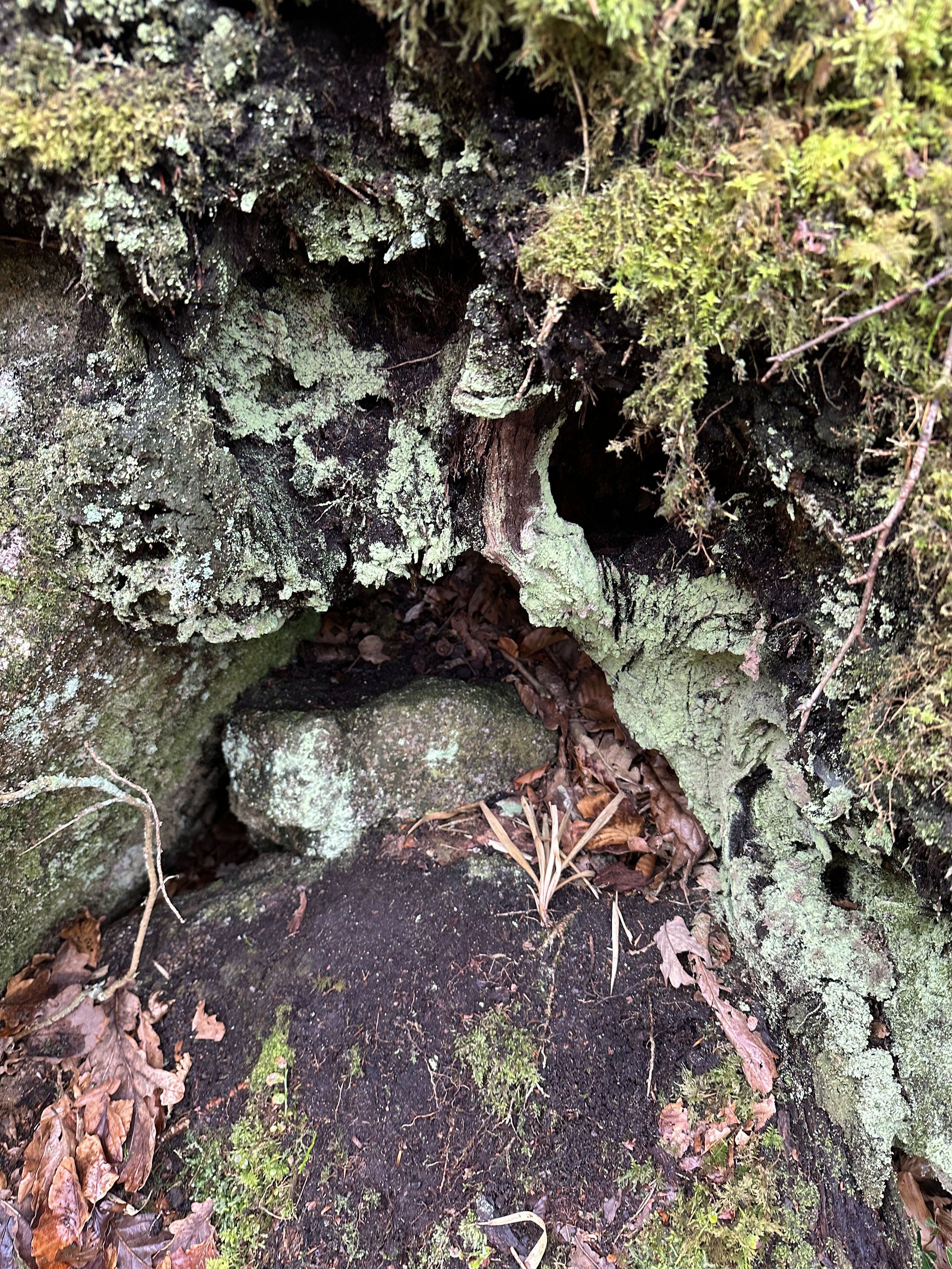
Cordyceps Mushroom Extract
Increases endurance
Increases lung capacity
Boosts energy levels
Improves sexual function in both sexes
Improves brain function
Antidepressant
Restores liver and kidney function
Antioxidant
Anti-inflammatory
Regulates cholesterol
-
(Hot Water / Ethanol
Extract) Amount per ServingBeta-Glucan At least 20%
Cordycepic
Acid (D-Mannitol) At least 15%Polyphenols At least 1.2%
Cordycepin
(3’ deoxyadenosine) At least 1.3%Adenosine At least 0.5%
Uridine At least 0.2%
-
1 serving of 1000mg (approx. ½ tsp) loose powder daily or 2 capsules daily, or advised by your health practitioner
-
Speak to your doctor if you are pregnant or breast feeding or if you take any prescribed medication before consuming this product.
Ingredients + Cultivation and extraction methods
Our cordyceps is a combination of 66.6% Cordyceps CS-4 mycelia and 33.4% Cordyceps militaris fruiting bodies, which is the combination that has been tested to contain the full spectrum of bioactive compounds, according to cutting edge research. The wild Himalayan cordyceps (Ophiocordyceps sinensis) is endangered by over harvesting and climate change. Our cordyceps is cultivated in sustainable vegan cultures. The CS-4 strain is the most successful one of many strains that have been isolated from wild Cordyceps sinensis, for its ease of cultivation as well as therapeutic potency.
Unlike the majority of products on the market, our mycelia is grown on liquid fermentation, which means that the growing medium is completely drained, leaving mycelium only, unlike mycelia grown on grain, which is never fully consumed by the mycelium and can never be separated from it, resulting in a starch rich product that is poor in beneficial compounds. Therefore when sellers advertise the presence of polysaccharides, they need to specify that these are beta-glucans because grain starch is also a polysaccharide, albeit devoid of therapeutic effects.
Different medicinal mushrooms require different extraction methods depending on the constituents they contain. In cordyceps’ case, both mycelia and fruiting bodies contain alcohol and water soluble therapeutic compounds. Therefore both our mycelia and fruiting bodies are dual extracted in ethanol and temperature controlled pressurised hot water separately and then vacuum dried into a powder. This powder is many times more bioavailable than a non-extracted ground fruiting body and many times more concentrated than liquid extracts.
This product contains no fillers, no binders and no additives. It is naturally vegan, free of grain, gluten and soy.
We use vegan pullulan capsule shells derived from tapioca starch.
Current Research
In traditional Chinese medicine, cordyceps is known as a lung and kidney tonic. In this ancient system, the lungs are the seat of Qi and the kidneys that of Jing. Qi is equated with breath. Across cultures, breath is accepted as that which animates matter, the vital force in us, and Qi can be loosely translated as “life force”. Cordyceps supports the respiratory system and increases lung capacity. Jing is our primal essence and in the traditional Chinese view, the kidneys are the “root of life” - the foundation of our ability to grow, regenerate and reproduce. Jing is thought to be depleted by stress and cordyceps’ is known to replenish Jing, hence its restorative and rejuvenating power, as well as its benefits for fertility.
ENERGY LEVELS AND ENDURANCE
Cordyceps increases our lung capacity and oxygen intake, as well as improving aerobic function, the respiration process whereby cells use oxygen to convert fats and sugar into ATP (adenosine triphosphate), the energy molecule used to power nearly all cellular activity. Higher levels of ATP result in increased stamina and endurance, which earned cordyceps its anti-aging reputation. Its compounds cordycepin and 3-deoxyadenosine are both nucleoside analogues, which participate in cell metabolism and hormone regulation processes, therefore increasing energy and balancing the endocrine and nervous system.
ANTI-STRESS AND ADAPTOGEN
A recent controlled human study found that cordyceps protects the kidneys, improves their function and slows the progression of kidney disease. Located adjacent to the kidneys are the adrenal glands, which work on a feedback system with the hypothalamus and the pituitary glands to regulate stress hormone levels and the activity of the autonomic nervous system (which is responsible for our fight or flight response to stressful situations). Adrenal depletion by prolonged stress is known to cause fatigue and anxiety: cordyceps helps balance and restore the adrenals. .
COGNITION AND MOOD
In recent animal studies cordyceps showed remarkable ability to regulate levels of neurotransmitters associated with learning and memory, normal function of the central nervous system and neuroprotection. This same study also demonstrated cordyceps’ beneficial influence on the expression of genes involved in depression, sensitivity to treatment against depression and nerve health. Cordyceps also appears to up-regulate dopamine, a neurotransmitter essential for learning, focus and determination. Cordycepin has been found to up-regulate brain derived neurotrophic factor (BDNF) and reduce inflammation in the hippocampus, preventing degenerative diseases and benefiting cognition and mood.
SEXUAL FUNCTION AND FERTILITY
Cordyceps is notorious for improving sexual function in both men and women. A placebo controlled study of patients with low sexual appetite demonstrated that cordyceps had a significant impact on enhancing libido in both men and women. Animal studies have shown that cordyceps improves levels of male sex hormones, as well as the quantity and quality of sperm. In human clinical trials, the cordyceps mycelium was found to up-regulate the levels of a protein and enzyme essential for the synthesis of oestrogen, thus improving the quality of maturing eggs and success of in vitro fertilisation.
REFERENCES
https://link.springer.com/article/10.1007/BF02836405 respiratory function
https://www.hindawi.com/journals/ecam/2015/174616/ Anti fatigue
https://pubmed.ncbi.nlm.nih.gov/20804368/ Exercise performance
https://www.hindawi.com/journals/omcl/2019/7850863/ kidney disease
https://pubs.acs.org/doi/abs/10.1021/acs.jafc.5b05931 Anti-inflammatory
https://www.degruyter.com/document/doi/10.2478/s11535-010-0010-8/html dopamine
https://www.ncbi.nlm.nih.gov/pmc/articles/PMC5874985/ learning and memory
https://pubmed.ncbi.nlm.nih.gov/24119256/ Brain health
https://onlinelibrary.wiley.com/doi/pdfdirect/10.1002/ptr.2576 Anti-aging and sexual function
https://www.hindawi.com/journals/ecam/2014/438506/ Antidepressant
ROGERS, R. The Fungal Pharmacy. Berkeley, California, North Atlantic Books, 2011.
https://pubmed.ncbi.nlm.nih.gov/27041868/ Sexual function
https://pubmed.ncbi.nlm.nih.gov/19051352/ Sexual function
https://pubmed.ncbi.nlm.nih.gov/14711788/ Women’s fertility and ivf
https://www.ncbi.nlm.nih.gov/pmc/articles/PMC353220/ Virus replication
https://onlinelibrary.wiley.com/doi/abs/10.1002/1099-1573(200012)14:8%3C650::AID-PTR675%3E3.0.CO;2-0 Arteries
https://www.ncbi.nlm.nih.gov/pmc/articles/PMC5449374/ blood sugar
https://pubmed.ncbi.nlm.nih.gov/12632512/ hepatic fibrosis
https://www.mycologyresearch.com/articles/view/64 Hepatoprotection
https://pubmed.ncbi.nlm.nih.gov/26284906/ Immunity
https://pubmed.ncbi.nlm.nih.gov/25789604/ bone health
https://www.mdpi.com/1420-3049/25/12/2735/htm comprehensive


